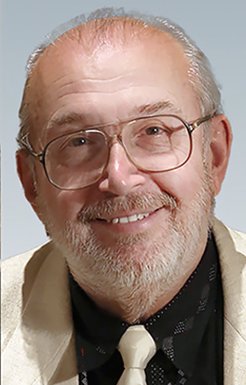John Kormendy elected to the US National Academy of Sciences
MPE is happy to announce that Prof. John Kormendy, External Member of MPE and a long-time collaborator of MPE scientists in the field of galaxies and black holes, has been elected to the United States National Academy of Sciences.

John Kormendy is known worldwide for his fundamental contributions to the understanding of the structure of galaxies, their components and formation histories. He has discovered and analysed important scaling relations between key parameters of galaxies, including their dark matter halos and central supermassive black holes. John Kormendy was among the first to dynamically detect and to measure the masses of black holes in external galaxies and helped to establish that they correlate tightly enough with their host bulge components to imply that they affected each other’s evolution. In contrast, he has shown that black holes do not correlate directly with any other component of their host galaxies, including disks and dark matter. John Kormendy has also been a pioneer in establishing the importance of the slow ("secular") dynamical evolution in disk galaxies. This provides a heuristic understanding of all commonly observed features that are encoded in galaxy morphologies such as Hubble-Sandage-de Vaucouleurs types. John Kormendy regularly spends time at MPE and significant parts of his work have been carried out in collaboration with MPE colleagues.
The US National Academy of Sciences (NAS) is a private, non-profit society of distinguished scholars. Established by an Act of Congress, signed by President Abraham Lincoln in 1863, the NAS is charged with providing independent, objective advice to the nation on matters related to science and technology. Scientists are elected by their peers to membership in the NAS for outstanding contributions to research. Current NAS membership totals approximately 2,400 members and 500 international members, of which approximately 190 have received Nobel prizes.
